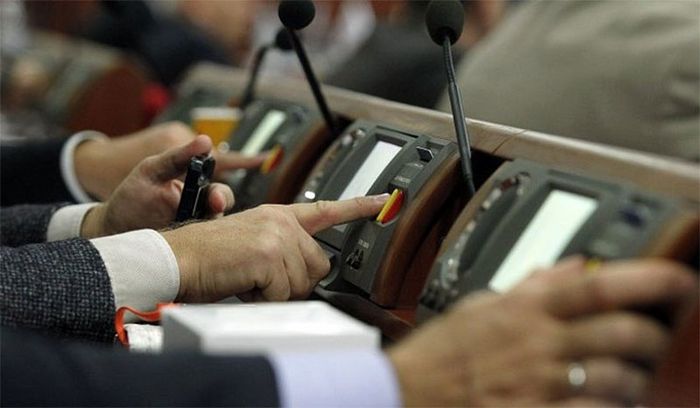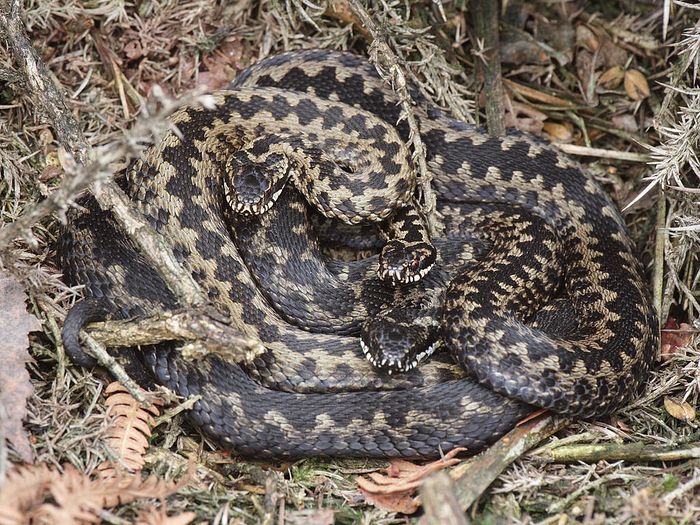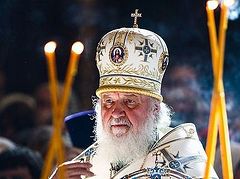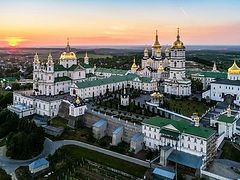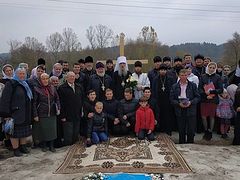The vicissitudes in the relations between the Ukrainian state and the canonical Ukrainian Orthodox Church are rapidly reaching their apogee. Just a few days after the creation of the so-called “Orthodox Church of Ukraine,” consisting of representatives of two non-canonical structures—the UAOC and the UOC-KP—the Ukrainian authorities began to fight with canonical Orthodoxy at the legislative level.
On December 20, the Verkhovna Rada of Ukraine adopted in the first reading bill No. 5309 which amended the basic law of the Ukrainian constitution “On freedom of conscience.” In and of itself, the new law is aimed solely at discrediting the Ukrainian Orthodox Church headed by His Beatitude Metropolitan Onuphry of Kiev and All Ukraine.
In the law was adopted the norm of renaming religious organizations, “the leading centers of which are on the territory of aggressor states,” which the Russian Federation is considered to be. Thus, according to the People’s Deputies, the Ukrainian Orthodox Church legally must change its title to the “Russian Orthodox Church in Ukraine.”
In and of itself, the law is completely untenable and is subject to challenge in the appropriate instances. Undoubtedly, the Parliament could not have been unaware of this. So why did they adopt it? What are the objectives of this law, and what can we expect next? Let’s try to figure it out.
Law No. 5309: What’s what
Before the vote on bill No. 5309, it was, according to procedure, examined in the profile committee of the Verkhovna Rada of Ukraine. Back in 2017, the main academic-expert department of the Ukrainian Parliament recommended to reject the introduction of this bill. According to the experts,
The innovations proposed in the bill, which, according to the view of the main department look insufficiently motivated and reasoned, go beyond the limits established in the relevant provisions of article 35 of the Constitution and Law of Ukraine “On the Freedom of Conscience and Religious Organizations.”
In other words, law No. 5309 was deprived of the right to exist at the preliminary stage. Of the main claims, it was specified that:
1. The exercise of the right to the freedom of worldview and religion can be limited by law only in the interests of the protection of civil order, health, and the morals of the population, or the protection of the rights and freedoms of other people;
2. Church and religious organizations in Ukraine are separated from the state;
3. The state does not interfere in the activities of religious organizations that are carried out within the framework of the law;
4. All religions, creeds, and religious organizations are equal before the law;
5. No advantage or restriction or one religion, creed, or religious organization with respect to another shall be permitted.
Interestingly, although the deputies have regularly contended—both before and after the adoption of the bill—that it is directed precisely against the Ukrainian Orthodox Church, in fact it is not so.[1]
If we study the statutes of the UOC in detail, no one will find anywhere any mention that the administrative center of the UOC is located in Russia. In this regard, the speaker of the UOC, Archbishop Clement (Vecherya) said:
According to all available legal documents, which didn’t appear today but were registered even before the Verkhovna Rada appeared in independent Ukraine, we have no connection with the aggressor state in legal, administrative, or economic terms. We received a tomos of independence already in 1990.
Moreover, a number of experts who cannot in any way be accused of sympathy for the UOC noted a mass of violations both in the law itself and in the procedure of its voting. In particular, the Ukrainian journalist Vladimir Boiko noted on his Facebook page:
This law was adopted by gross falsification and interference in the Rada’s voting system. In particular, the People’s Deputy of Ukraine Arkady Kornatsky published on his Facebook page information about how he wasn’t in the Verkhovna Rada on December 20, 2018, that he didn’t vote for bill No. 5309, and that he hadn’t given anyone his voting card. Meanwhile, he’s registered on the site of the Verkhovna Rada among the People’s Deputies who supported this lawlessness.
Deputy Nestor Shufrich from the “For Life” opposition platform also spoke about the violations in voting for the law:
We asked for something simple: To implement the regulatory norm, to revote on this issue, to exclude this electoral fraud, and that such a fundamental question would be voted on as provided for by the regulations.
In turn, the head of the UOC’s Synodal Legal Department Archpriest Alexander Bakhov finally exposed the legal basis for the existence of law No. 5309, noting that:
The decision to change the name of the UOC is made by its governing body, the Synod of the UOC, not the Verkhovna Rada of Ukraine. Therefore, even if this law enters into force, that doesn’t mean that the UOC and its parishes, monasteries, and dioceses are automatically deprived of their names.
Despite the absurdity of the norm adopted by the officials, the President of Ukraine Petro Poroshenko signed the law, declaring:
The specified changes in the law create better conditions for the realization of this right for those who will be deciding which Orthodox jurisdiction to belong to… Either to the newly-created autocephalous Orthodox Church of Ukraine, or to the Church that insists on preserving its connection and dependence on the ROC.
Legislative populism and a reality check
If we combine everything enumerated above, the conclusion arises that such a dubious law as No. 5309 will most likely be challenged. This will happen, if not within the framework of the Ukrainian state, then at the international level. Hence the question: What was all this contrived for in the first place?
At first glance, the situation looks like an attempt to discredit the UOC within the country against the backdrop of the newly-formulated OCU, however, everything is much more complicated. Firstly, with this law and the informational noise around it, the state again wanted to draw public attention to the idea that the UOC is a “fifth column” on the territory of Ukraine. During the Verkhovna Rada plenary session, the Radical Party Deputy Igor Mosiychuk said:
Now is the moment of truth. The future of the state depends on the vote of every deputy. The OCU will be united, no matter how much the Russian world whimpers. You all should know that pushing the green button, you fire at the Russian world. Death to the Russian world!
This opinion was presumably shared by 240 deputies who voted for the law.
Secondly, the adoption of law No. 5309 is also a test of the reaction of the UOC itself and its readiness for self-defense. To the honor of the clergy and faithful of the UOC, it must be noted that on the day of the vote, despite the difficult weather, several thousand people gathered outside the Rada, protesting against the interference of the state in the life of the Church. The Church had a similar reaction in the past when the Verkhovna Rada had already tried to vote for the anti-Church bills.
This all suggests that they’ll continue to test the Church in precisely this “legislative” way. Why are they trying to fit this lawlessness within the framework of the law?
Calling white black:
What is truly lurking behind the legislative lawlessness in Ukraine?
Of course, any burst of negative emotions in regard to the canonical UOC today and in the following months will be closely connected with the creation of the new “OCU” quasi-church. Over the past four years, all interested parties have been assured that it’s impossible to “trample upon” the more than 12,000 parishes and monasteries of the UOC by direct raider seizures.
Firstly, because it causes too sharp of a reaction in the West. In just the past year, Ukraine became the leader in violations of Orthodox Christians’ rights in Europe.
“According to the results of the monitoring of the forty-seven member countries of the European Union, 165 violations of the freedoms and rights of Orthodox Christians were collected in 2017. About 66% of the cases collected occurred in Ukraine, 17% in southeastern Europe (Albania, Bosnia and Herzegovina, Croatia, Cyprus, Greece, Kosovo, Macedonia, Turkey), and 15% in Russia. Additionally, one violation was recorded in Poland and one case in Germany and Belgium,” said Igumen Philip (Ryabikh), the ROC’s representative to the European Union.
Of course, this statistic doesn’t add any credibility to the current Ukrainian government. Accordingly, the following thesis was quickly inscribed in the vector of state politics:
“For an independent state—an independent Church.” If we recall the beginning of Poroshenko’s and his government’s rule, nothing was said about this in 2014. The OCU, as an anti-canonical and purely political project, was immediately rejected by the faithful of the UOC. The expected unification did not happen. Instead, society received a kind of mutated pseudo-church organism—a viper’s nest.
However, the newly-created “church” has become quite useful as an instrument of pressure on the UOC. That is, effectively, the OCU is replacing the UOC with itself. Of course, all of this is accompanied by administrative pressure and blackmail. Moreover, any new law can now be written under the new “state” church that will be unambiguously received with a hurrah in marginalized Ukrainian society.
Law No. 5309 was adopted supposedly out of humane motives, “so the faithful wouldn’t confuse the ‘occupant’s Church’ with the true Ukrainian Church.” At the same time, several other anti-Church bills are waiting in the Verkhovna Rada’s dock, aimed at serious complications in the life of the UOC itself. For example,
- bills on the “self-determination” of the faithful to change their religious affiliation;
- bills on the expropriation of churches of the UOC that are architectural monuments and are on the state’s balance. The encroachments on the Pochaev and Kiev Lavras can be attributed to these latter bills.
But the most terrible thing, that I absolutely don’t want to believe, is the exacerbation of the religious situation with the goal of prolonging the political power of the President and the bureaucratic elite. As we know, martial law was introduced in Ukraine in early December, covering only certain regions of the country. According to many political analysts, Poroshenko would have liked to introduce martial law in the whole country to cancel the upcoming presidential elections. But although by pointing at the Azov conflict he didn’t manage to do so, it’s not ruled out that this plan will be realized playing the religious card.
If the Verkhovna Rada adopts any bill aimed at expropriating churches and monasteries from the UOC, it could lead to inevitable confrontations. The faithful will protect their holy sites. That’s precisely what Poroshenko is expecting, so as to “nail” the omnipresent “hand of the Kremlin” to the canonical Church, accusing the UOC of fulfilling the orders of the FSB, the KGB, the Chief Intelligence Directorate, the Mi-6,[2] or whoever else in order to destabilize the situation in the country. Thus, Poroshenko will be totally free to introduce martial law throughout all of Ukraine, which is practically his only chance to remain seated on the presidential chair.
Moreover, any act of disobedience to the authorities, even in the process of the required renaming, will be regarded as cause for completely forbidding the activity of the Ukrainian Orthodox Church in the country.
A recipe for confrontation
Based on the possible scenarios for the development of the situation, we should draw the attention of the entire UOC—both the clergy and laity—to ensure that any action coming from the Church would always be thought out on the canonical and legal level. As you can see, any careless step could lead to serious consequences and aggravate the already difficult situation in Ukraine.
The history of the Church gives us many examples of how we can defend ourselves and that which we hold dear. Above all is prayer and fasting, especially relevant in these pre-Nativity days. And further, as says the holy Psalmist and Prophet David: Cast thy burden upon the LORD (Ps. 54:22).

